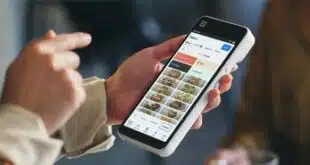A program launched last year by the U.S. Department of Agriculture to let holders of electronic benefit transfer cards spend their benefits online has quickly expanded to 42 states and the District of Columbia, up from just seven states as recently as March, according to Fiserv Inc., which is working with the USDA to process the transactions
Usage, too, is on a fast rise as cardholders respond to the restrictions stemming from the Covid-19 pandemic by turning to online shopping for groceries. Transactions totaled 3.5 million in June, nearly triple the count in May, according to Fiserv’s data. The SNAP program serves some 37 million recipients, though Fiserv is unable to estimate of how many of these cardholders are able to use the online program. “I can say that consumer adoption is growing rapidly,” says Nandan Sheth, Fiserv’s global head of digital commerce, in an email message.
The cards are issued as part of the USDA’s Supplemental Nutrition Assistance Program, which began enabling online purchases in April 2019 in the state of New York. The SNAP benefit is the electronic successor to the longstanding food-stamp program for low-income recipients.

SNAP cards require a PIN for authentication, but users can enter the code via a digital PIN pad developed by Fiserv. The online PIN pad relies on proprietary PIN-on-glass technology from the Brookfield, Wis.-based company, which is the only processor handling these transactions so far.
PIN-on-glass allows for secure entry of PINs on off-the-shelf mobile devices. “Fiserv is also working with other processors and payment platforms so they can use our PIN-on-glass technology to process EBT transactions,” Sheth says. “Our vision is for our technology to be an open platform, and enable any consumer with SNAP benefits to be able to purchase groceries online.” Fiserv in February announced its First Data unit had performed the first PIN-on-mobile contactless transaction involving only a commercially available mobile device.
Grocery chains accepting the payments include ShopRite, Wakefern, Walmart, Wright’s Markets, Amazon, and TheFreshGrocer. Other chains have adapted versions of the program in response to the pandemic. Kroger Co., for example, began accepting online orders for pickup at nearly 2,800 stores but required users to enter PINs at the store.
According to Fiserv, the five states with the highest growth rate in online EBT transactions to date are: California (11%), Texas (9%), Florida (7%), New York (7%) and Illinois (5%). The eight states not yet participating are: Alaska, Arkansas, Hawaii, Kansas, Louisiana, Maine, Mississippi, and Montana, though Fiserv says four states are “awaiting implementation.”.





